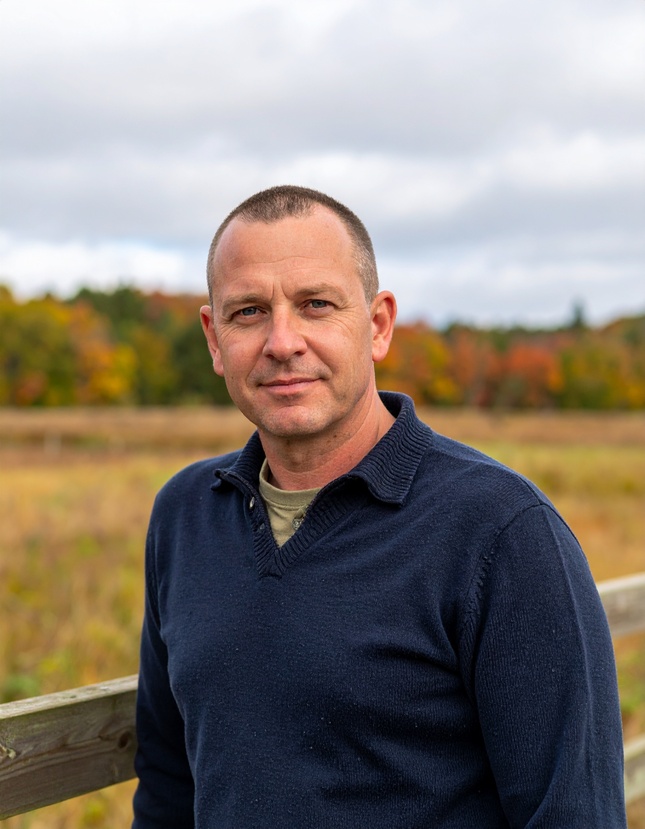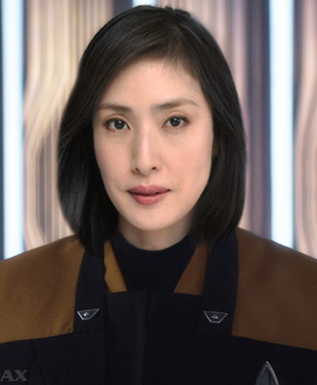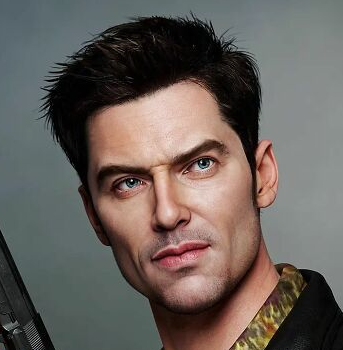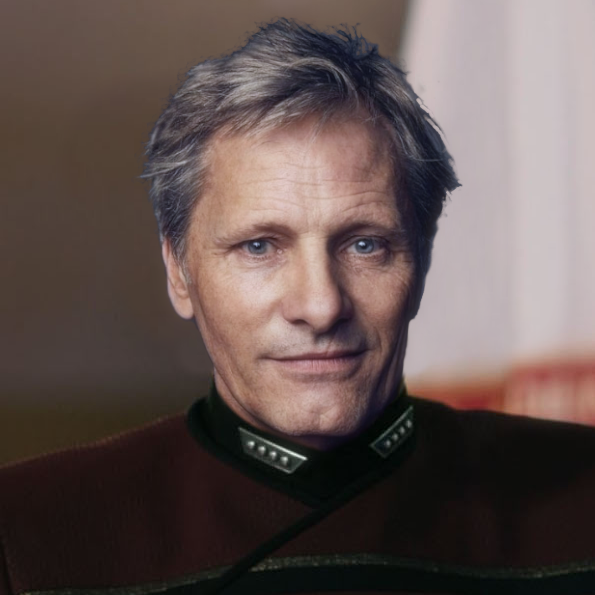“Is that what it looks like?” Admiral Reyes asked as she stared incredulously.
“If by ‘what it looks like’, you mean a gravitational singularity in the corona of a K-type main sequence star, sucking 241 exagrams of plasma per second out of its photosphere, then yes,” Dr. Lockwood rattled off factually. It was unlike anything he’d ever seen, whether with his own two eyes or as expressed in pure mathematical terms, and the accretion lines extending up from the inner atmosphere of the star were sucking stellar material out of it at an astonishing rate. “Gravimetric radiation and Bondi-Hoyle both confirm mass equivalence of the apparent singularity to be around 66 solar units.”
“How is that even possible?” Admiral Reyes shook her head. She wasn’t half the physicist that the ASTRA lead was, but even she knew that this phenomenon they were witnessing shouldn’t have been possible. There wasn’t enough stellar material in the entire Vesparan system to create a singularity one fiftieth the size of what they were staring at, and if the singularity had originated outside the system, it would have caused massive gravitational shifts millenia, or even meganna, prior to parking itself in the corona of the star.
“This isn’t possible,” Dr. Lockwood assured her. The mathematics didn’t support it.
“Except that it is,” Captain Lewis stated bluntly as he stepped briskly onto the bridge flanked by Captain Vox and Commander Lee. The commanding officers of Serenity, the Diligent and the Ingenuity had been aboard their respective ships for the trip from Kyban to Vespara, but they’d beamed over to the Polaris as soon as the squadron came to a halt in Vespara and the magnitude of the situation was clear. “We’re staring straight at it. You and your fancy equations may not have a way to explain it, but it’s there, and it’s slowly swallowing the system.”
“I wouldn’t say slowly,” Dr. Brooks offered from the rear of the bridge, where he was casually paging through sensor telemetry on a PADD while leaned back with his feet up on the console. “In the five minutes we’ve been here, the rate of accretion has increased by 127 petagrams.”
“Tidal shifts caused by the gravity well would cause variability in flow,” Dr. Lockwood asserted disinterestedly. Of course there was a change in accretion, as of course the singularity would cause shifts in plasmatic currents within the star’s convective zone. “As would the relative position of the two bodies too.” The massive gravity well would be warping the star’s peculiar velocity towards itself, and the star moved up the gravitational gradient, accretion would obviously increase as well.
Dr. Brooks frowned. Did the kid take him for an amateur astronomer? “Yeah, but I don’t mean those,” the old scientist replied gruffly as he stood up. “I’m talking about an increase after factoring those out.” He walked across the room and handed his PADD to the insufferable ASTRA lead. “There’s more going on here.”
Dr. Lockwood’s eyes darted across the PADD as he reviewed Dr. Brooks’ work. “Now that is curious…” The old man had done his math right. “And it’s also directly proportional to, but of a significantly lesser order of magnitude than, the increase in graviton radiation we’ve picked up over the same period.” It was strange, almost as if the stellar plasma was providing combustible fuel, rather than raw material, to the singularity.
“English please,” Captain Lewis grumbled as he tried to follow along. He hated when they talked in technobabble and half-sentences. It did nothing to help those, like him, who actually needed to do something as a result of their esoteric musings.
“For the layman,” Dr. Lockwood replied as he looked over at Captain Lewis in the same manner as he would towards an ignorant child. “There’s more and more stellar matter being sucked off the star every minute, and the singularity is growing in strength as time goes by too.”
“Isn’t that what singularities always do?” Captain Lewis replied. He, just like every other Starfleet captain, understood the basics of relativistic physics enough to understand that singularities grew as they ingested more material.
Did the Captain not listen to any of the numbers they’d just been going over? “Yes, except that, in this case, for every kilo of plasma that goes in, the increase in gravitational pull is the mass equivalent of around 21.97 million kilos.” That was not how singularities worked.
“Ok, I barely passed calculus… so that means what, exactly?”
That the captain had barely passed calculus was unsurprising to Dr. Lockwood.
Dr. Brooks, on the other hand, was more forgiving of his old friend. He jumped in to offer an answer: “It means that, for every Earth-sized nugget of plasma that gets sucked in, this singularity grows in gravitational influence by a little over three copies of the Vesparan sun.” Even as he said it, it sounded crazy. But also kind of cool. What a mystery they had before them.
Dr. Brooks’ explanation was enough for Captain Lewis to catch back up. “And how fast is it sucking off plasma?” he followed up, aware that would be a determinant factor in their operation.
“About three Earths per day.”
“Oh, that’s not good,” Captain Lewis frowned. Even he could do the elementary math in his head. “So today, it’s 66 solar masses, but tomorrow, it’ll be 76 solar masses?” The implications were obvious, and terrifying.
“Give or take.”
“Fuck.”
“I’m afraid we have another problem,” Dr. Sh’vot volunteered, causing everyone to look over at him. Ever since Dr. Brooks had raised his observation about increasing accretion, ASTRA’s geophysicist had been working to update his model. The result was a compounding problem. “My original habitability forecast relied on Dr. Imbalta’s terrestrial observations of fifty to sixty solar masses. However, if this singularity is growing at a rate of ten stellar masses per day, we do not have a month until Vespara Prime falls out of the system’s habitable zone.”
“How long do we have?” Commander Lee asked. She had a vested interest in the number. As the Squadron Engineering Officer, it would be her duty to oversee the fabrication and build out of all infrastructure necessary to protect and evacuate the people of Vespara Prime, and she was already feeling the pressure from the original timeline that Dr. Sh’vot had presented them.
“Seven days,” Sh’vot replied flatly.
The words landed with a thud.
“Seven days?” Commander Lee stuttered. His original estimate of a month had already been a ridiculous ask. But a week? That was straight impossible.
“Yes, seven days.”
“What about the climate control systems you sent over from the Federation Terraforming Command?” Commander Lee asked desperately. She needed more time. “If we can get those built out and deployed, how much longer will they give the Vesparans?”
“Another four days.”
“Only four more days?” Commander Lee asked exasperatedly. “Yesterday, I thought you said those satellites, if we could get them fabricated, would extend the horizon by eight to ten days?” She’d already been working on a way to repurpose the Alita-class Diligent‘s large shuttlecraft fabrication and maintenance facilities to build out the needed satellites.
“That was before we knew the singularity was increasing at what, by all conventional measures, should be an impossible rate,” Dr. Sh’vot frowned. “They’ll give us four days, and not a day more.” Even as it was, it would be mighty toasty on the surface of Vespara Prime those last few days. The planet was wobbling erratically on its axis, and, in parallel with its decaying ellipsis, that meant, at times, its tilt was amplifying the effects of its falling radial distance.
Commander Lee reiterated her understanding back at him, just to make sure she had it right: “So what you’re saying is that we have eleven days to either evacuate six million people or to build enough environmentally hardened shelters to protect them all until we can?” The nerves were evident in her voice. She could feel the weight of an entire world hanging over her.
“That is not what Dr. Sh’vot said,” Dr. Brooks offered darkly. “He just said the planet will be uninhabitable in eleven days. You’re the one that has put an impossible goal upon your shoulders.” The sooner she accepted she wouldn’t be able to save them all, the sooner she’d get to doing what she could do without being saddled by what she couldn’t.
Commander Lee swallowed hard and looked over at Admiral Reyes. “If you don’t mind, I’m going to head back to the Ingenuity. I’ve got far too much to do, and not near enough time to do it.” Without another word, she beelined it for the exit, her mind already racing with how she would divide the workloads between the engineering teams of the squadron’s four ships.
Dr. Brooks followed her out. He’d grown quite fond of her since Beta Serpentis, and he worried about her in moments like these.
Admiral Reyes watched them go. Long ago, she’d been a young engineering prodigy like Cora Lee, and she felt for what the young woman was going through as she stared down the barrel of impossibility. Their four ships could not build shelters for six million people in eleven days, nor could their four ships hold even one one-hundredth of the planet’s population, but they’d do their damndest to try.
“I think it’s time we put out a sector-wide call for assistance,” Captain Vox suggested. “Starfleet, civvies… hell, even the Klingons. Anyone that’s got a place to stuff some people, or an industrial replicator, or a block of duranium, we need them, and we need them now.” Maritime tradition was rich with examples of sailors rising to the aid of fellow seafarers, and the transition to the stars had done nothing to belay that spirit. The mind of the Squadron’s Strategic Operations Officer was already turning with how he would coordinate the logistics of such a massive airlift operation.
“I don’t disagree at all,” Admiral Reyes concurred. “I’ll put out the call.”
“Then I’ll head back to the Diligent to get ready,” Captain Vox nodded dutifully as he headed for the exit. He just hoped that they would answer the call, that the skies over Vespara would soon turn into the most complex battlespace he’d ever managed.
“What about the people of Vespara?” Fleet Captain Devreux asked, recognizing there was still another key ingredient missing from a planet-wide evacuation. “They don’t even know we’re here, or that their world is in trouble… and if what we know of them is right, there’s no guarantee they’ll quickly cede to the idea of our help.” It had been so long since Starfleet had contact with the Vesparans that it wasn’t even assured they would trust what Starfleet had to say.
“Well, I guess we’ll need to go down there and say hello then, won’t we?” Admiral Reyes smiled as she looked over her shoulder at Lieutenant Hall, the psyops specialist turned counselor, and Lieutenant Balan, the ever-optimistic scholar of culture and diplomacy. “You two ready?”
Dr. Hall nodded wordlessly.
Lieutenant Balan nodded too, but a quite bit more excitedly. She always was excited, whenever new cultures were involved, and although the people of Vespara Prime had all emigrated from other Federation worlds, their culture, rooted in tenets of anti-technologism, was quite unique.
“Alright, then head down at your discretion,” Admiral Reyes authorized. They’d already talked through the plan. She wasn’t sure how well it would go, but it was at least more subtle than just beaming a landing party into the town square. She figured they might as well try it first, and if it didn’t work, then they’d try something more blunt.
As the two peeled away and Fleet Captain Devreux went over to discuss something with the lieutenant at the conn, Captain Lewis drew up next to Dr. Lockwood and Admiral Reyes.
“You know none of this matters, right?” Captain Lewis offered in a quiet tone only the admiral and the physicist could hear. “Not really, at least. Unless you lab rats find a way to stop this, we might save a few hundred thousand, but millions will die.”
Admiral Reyes wanted to disagree, but she couldn’t.
She knew he was right.

 Bravo Fleet
Bravo Fleet

















